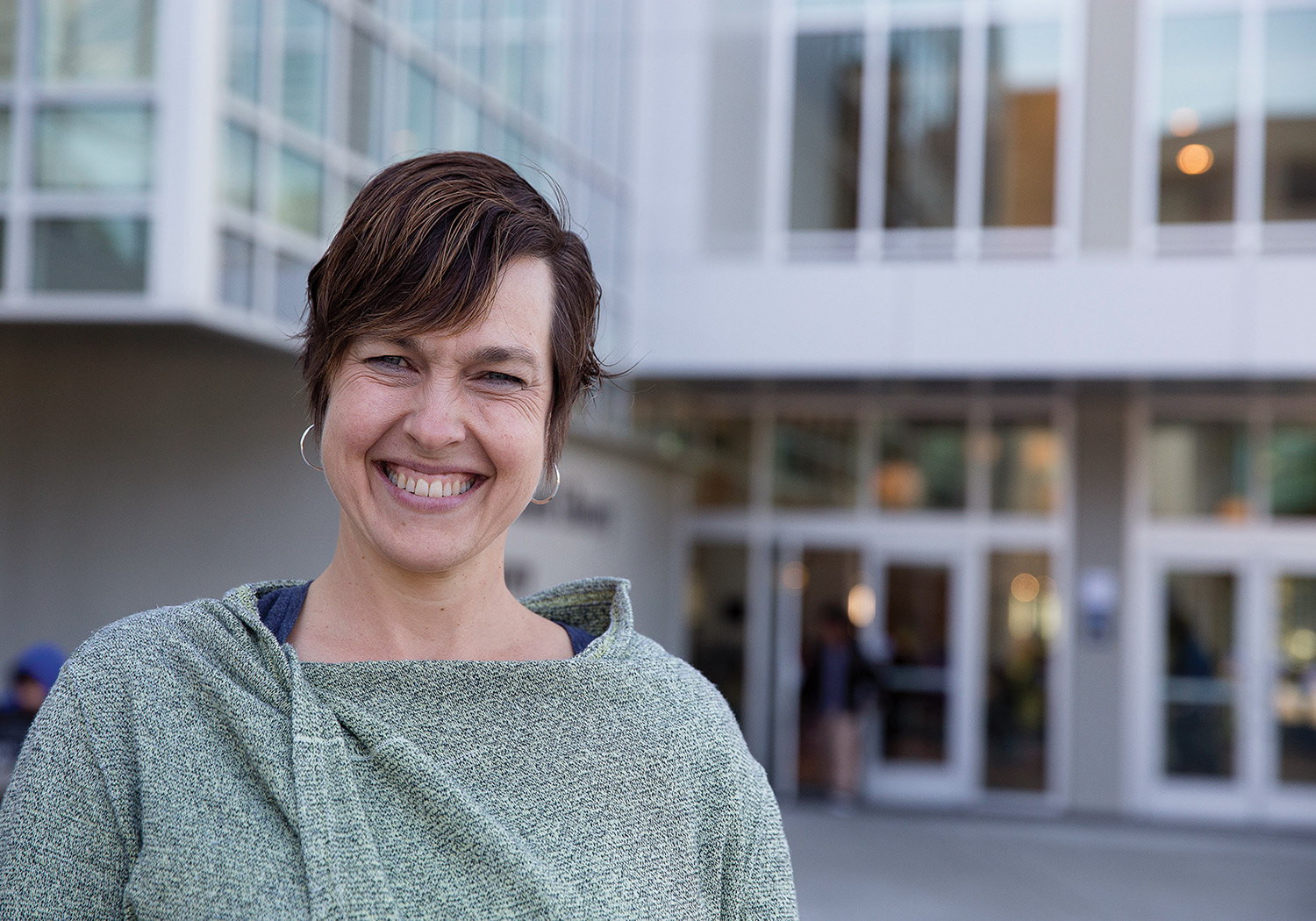Finding the Words

Jen Cross is a writer and writing workshop facilitator living in the East Bay. Through her organization, Writing Ourselves Whole, she has offered transformative writing workshops for trauma survivors and others since 2002. She will graduate from SF State with an MFA in Creative Writing in May.
At the first meeting of an autobiography-writing class I was taking at SF State, the teacher, Assistant Professor of Creative Writing Chanan Tigay, asked us tell our life stories in three minutes. First we wrote, just to jot down highlights, and then we shared with our classmates. Most of my peers were able to relate a somewhat clear narrative, without jumping around in time. They began at the beginning, they followed their notes, they moved from childhood to adolescence to young adulthood (and then stopped, since most of them actually were young adults), with no pauses or hesitations, no “Oh wait, I forgot to tell you this part!”
Describing one’s life seems like a simple exercise, but as I begin to share, I get lost immediately. What happened when? Who was I pretending to be that year?
I started out O.K., from childhood up to my parents’ divorce, and then the narrative went off track. While describing childhood tragedy and unrooted adulthood, I got details of my own life wrong; in offering feedback, a classmate mentioned my marrying a woman while I was still involved with a man. Oh, wait, I wanted to correct her, that’s not how it went. But the trouble was mine. In trying to get these particular forty-something years into three minutes, I left out a whole marriage, I left out betrayals, I left out plenty.
I can’t get my story straight I was thinking as I walked across campus past the J. Paul Leonard Library. That’s the whole reason I took the class — in fact, the reason I returned for my MFA. I feared I’d never learn how to tell this story of adolescent violence and loss, learn how to trace in words trauma’s trajectory, and its aftermath. Given my erratic relating in class, I thought, Do I even have what it takes to write this story?
I’d been writing seriously since my early 20s and, just before I turned 30, I returned to school for an M.A. in Transformative Language Arts, developing a theory of writing as a transformative practice for sexual abuse and sexual assault survivors. Over more than a decade, while continuing to polish my craft, I offered groups for survivors (and others, too!) that allowed them to explore their story and their creativity in supportive and generous communities of peer writers.
By 2014, I had hit a wall. There were difficult, complicated stories in me, and I didn’t know how to get them out. That’s where SF State came in.
As a result of that first autobiography class I took with Chanan (not to mention “Poetics of Narrative” followed by “Speculative Fiction,” both taught by Andrew Joron), I began to “tell all the truth, but tell it slant,” as Emily Dickinson wrote. These knowledgeable, generous professors invited me to experiment with form, try on new genres and be unafraid of looking my material in the face and writing directly into the heart of it. I slowly crept up to the edge of an experimental narrative, combining personal narrative with creative restorying — a very slant telling, indeed.
Last year, I published a book based on my years running writing groups, titled Writing Ourselves Whole: Using the Power of Your Own Creativity to Recover and Heal from Sexual Trauma (Mango Media). I wrote most of the book in the two years leading up to that first semester of my MFA program, intending it to be a companion for folks who wanted to use writing as a way to investigate and transform stories they’ve been afraid to write. I have been extremely fortunate to find such companions in SF State’s MFA program, instructors and peer writers who have led me, semester by semester, into the book that I had been afraid, but needed, to write.